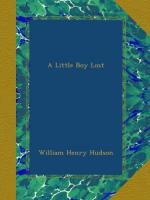There before him, surrounded by all that beautiful company, stood the horses that drew her—great milk-white horses impatiently pawing the dusty ground with their hoofs and proudly champing their gold bridles, tossing the white froth from their mouths. But when he lifted his eyes timidly to the majestic being seated in her chariot before him he was dazzled and overcome with the sight. Her face had a brightness that was like that of the Mirage at noon, and the eyes that gazed on him were like two great opals; she appeared clothed in a white shining mist, and her hair spread wide on her shoulders looked white—whiter than a lamb’s fleece, and powdered with fine gold that sparkled and quivered and ran through it like sparks of yellow fire: and on her head she wore a crown that was like a diamond seen by candle-light, or like a dewdrop in the sun, and every moment it changed its colour, and by turns was a red flame, then a green, then a yellow, then a violet.
[Illustration: ]
“Child, you have followed me far,” said the Queen, “and now you are rewarded, for you have looked on my face and I have refreshed you; and the Sun, my father, will never more hurt you for my sake.”
“He is a naughty boy and unworthy of your goodness,” spoke one of the bright beings standing near. “He killed the spoonbill.”
“He cried for the poor slain bird,” replied the Queen. “He will never remember it without grief, and I forgive him.”
“He went away from his home and thinks no more of his poor old father and mother, who cry for him and are seeking for him on the great plain,” continued the voice.
“I forgive him,” returned the Queen. “He is such a little wanderer—he could not always rest at home.”
“He emptied a bucketful of water over good old Jacob, who found him and took him in and fed him, and sang to him, and danced to him, and was a second father to him.”
At that there was great laughter; even the Queen laughed when she said that she forgave him that too. And Martin when he remembered old Jacob, and saw that they only made a joke of it, laughed with them. But the accusing voice still went on:
“And when the good old shepherd went to sleep a second time, then the naughty little boy climbed on the table and picked a hole in the thatch and got out and ran away.”
Another burst of laughter followed; then a youth in a shining, violet-coloured dress suddenly began twanging on his instrument and wildly capering about in imitation of old Jacob’s dancing, and while he played and danced he sang—
“Ho, sheep whose ways are known
to me,
Both
ewe and lamb
And
horned ram
Wherever can that Martin be?
All
day for him I ride
Over
the plains so wide,
And
on my horn I blow,
Just
to let him know
That
Jacob’s on his track,
And
soon will have him back,




